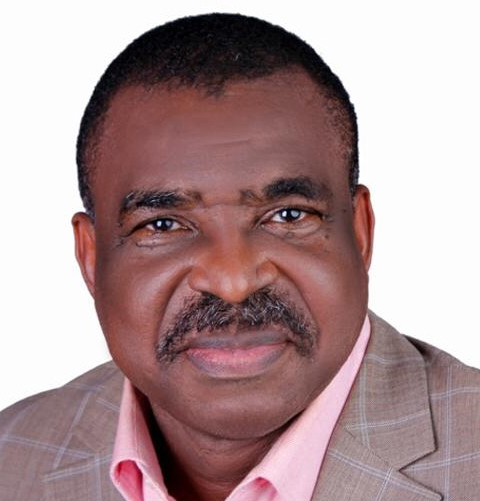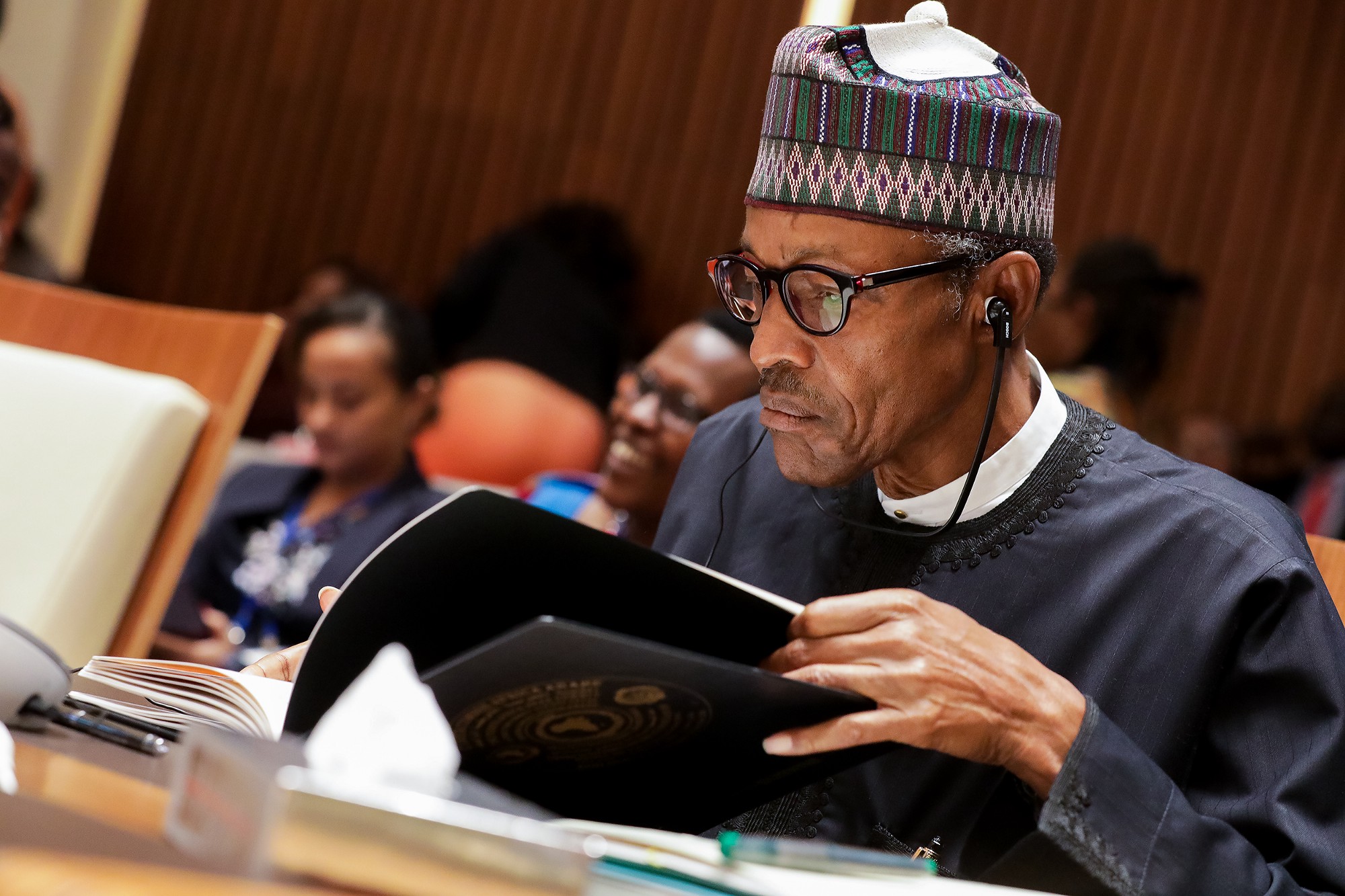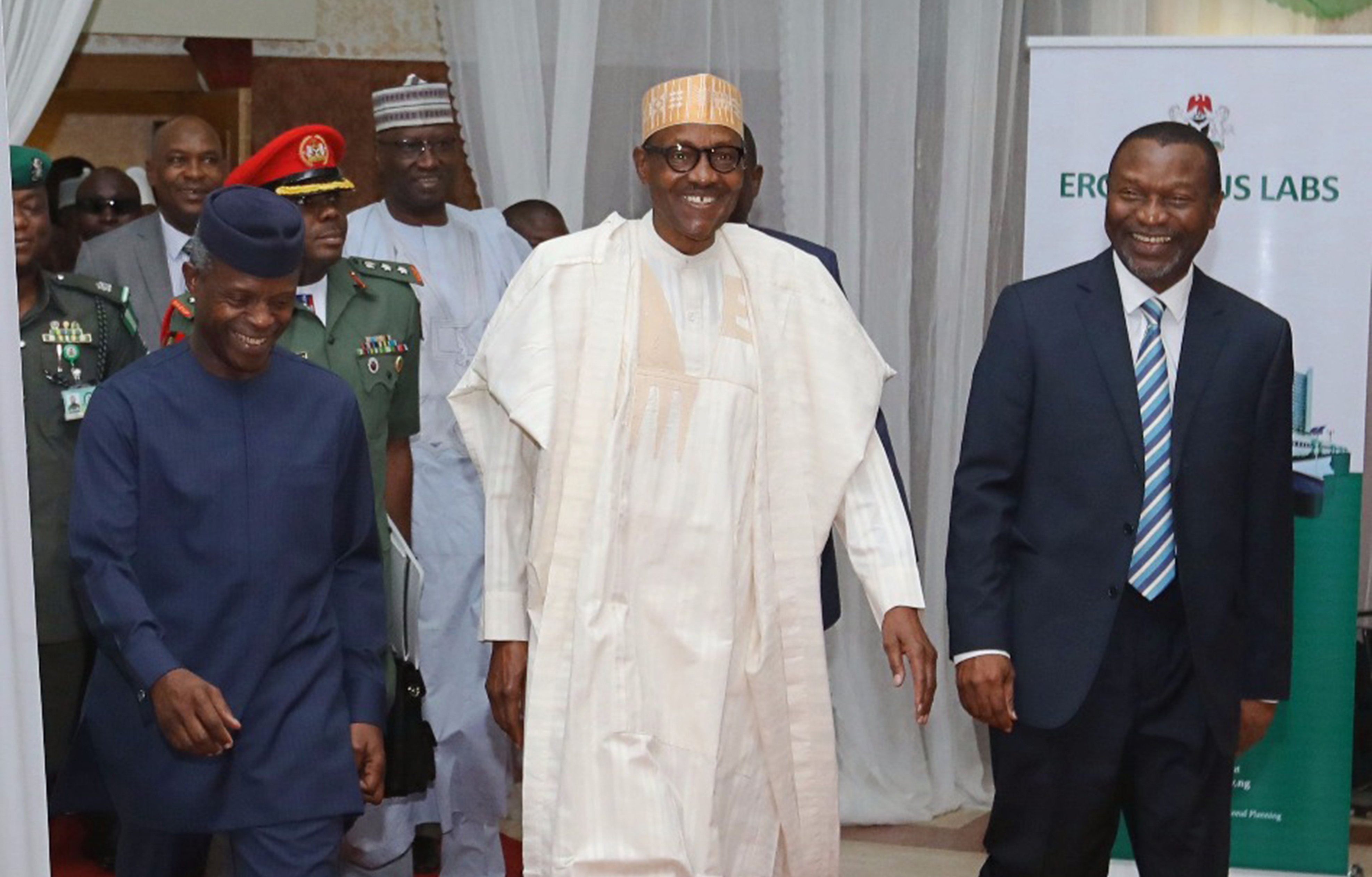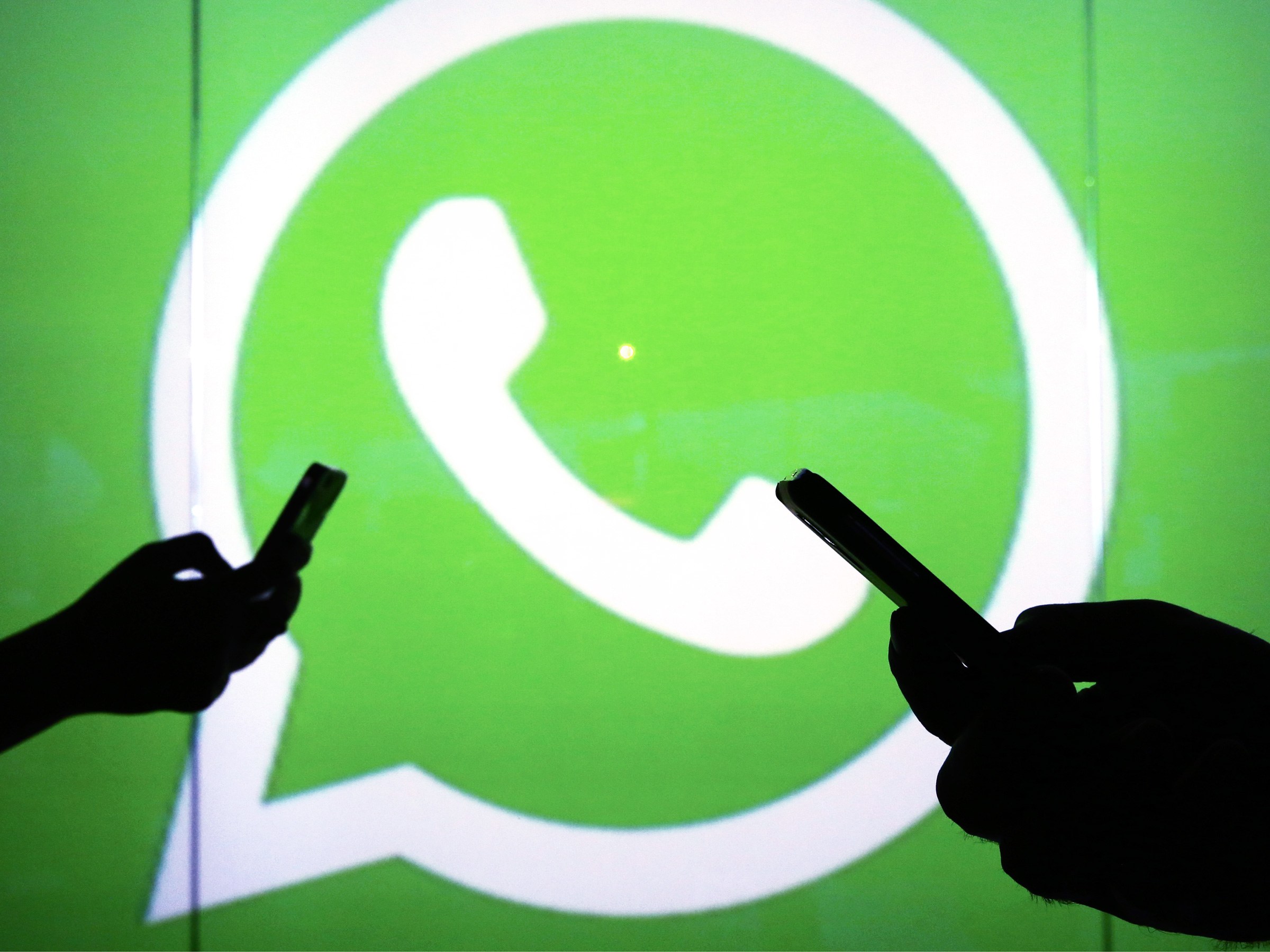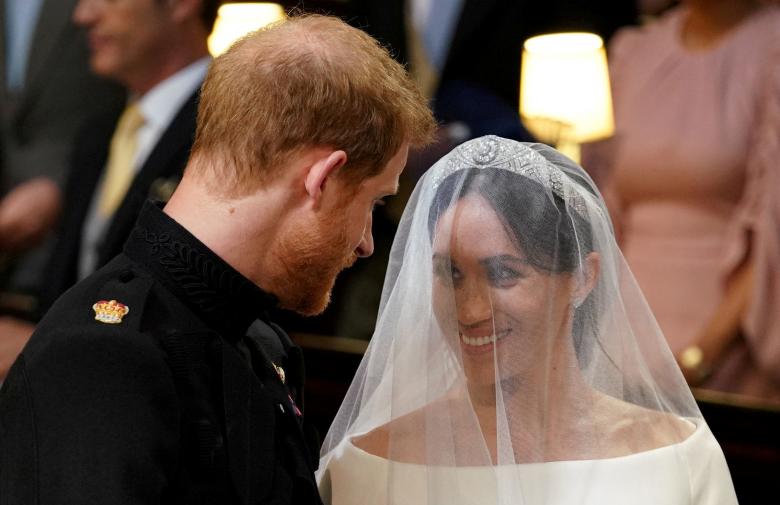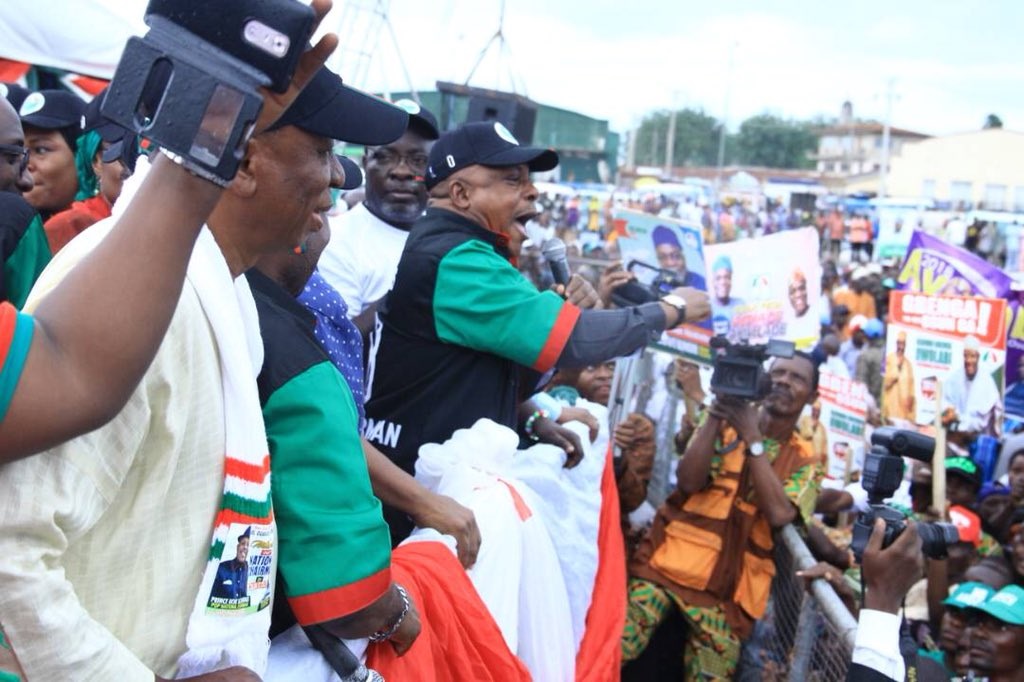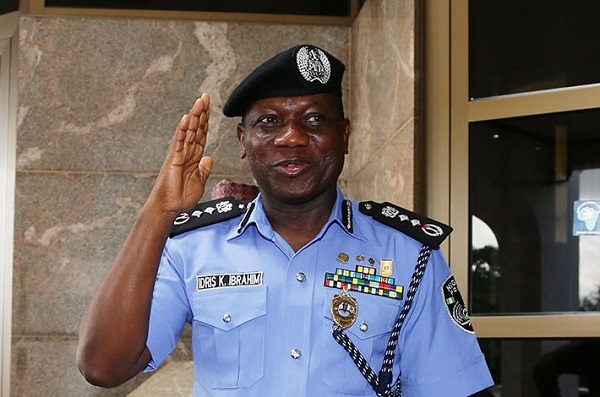I disagree with those claiming that President Muhammadu Buhari can’t be second-guessed. Put plainly, I don’t share the sentiment that Mr President can’t be predicted.
And here is why.
To jeopardise President Buhari’s quest for a second term in office in the forth coming 2019 general elections, antagonists of his govt , notably former President Olusegun Obasanjo, OBJ wrote a scathing letter denouncing Mr President’s style of governance.
In the letter, president Buhari was excoriated for myriads of economic malaise and social injustices now besetting Nigeria.
Advertisement
And OBJ concluded by discouraging, if not demanding that Buhari excuses himself from vying for the office of the president of the federal republic of Nigeria for a second term.
It’s on record that President Buhari has spurned OBJ’s demand and gone ahead to declare his desire to get re-elected into office next year.
Unlike other presidents who suffered OBJ’s caustic tongue, (Sani Abacha arraigned him for felony and Goodluck Jonathan traded vitriolic with him publicly) Buhari did not respond in kind.
Advertisement
Instead, he applied the principle of military etiquette which frowns at or discourages rudeness or insubordination to superior officers whether in or out of office.
After OBJ’s letter went public and viral, l wrote and published an article titled “Letter To Buhari:Is OBJ An Opportunist, Patriot Or Mystic?”
In that piece widely published, l second guessed Mr. President by surmising that his restraint from tackling OBJ frontally was a deliberate tactic rooted in military espirit de Corp. As it turned out, l was right and on point.
In the referenced article published on February 9 in vanguard newspaper and on all the major online newspapers , l concluded that “For the likes of senior special assistant, Garba Shehu and Femi Adesina, special adviser on media to have kept their usually poisonous arrows in their quivers and allow only Lai Mohamed, the usually pugnacious information minister to try to deodorize the otherwise very pungent, if not toxic public umbrage against PMB by OBJ, there must have been clear instructions from the commander-in-chief to hold fire.”
Advertisement
I was on point in my analysis as Mr President admitted in a media interview about three months after my article was published.
In an interview with the Voice of America, VOA (Hausa service) during his recent state visit to USA, president Buhari confirmed my earlier position by admitting that he made a conscious decision not to respond to OBJ’s abusive letter in kind.
Giving an insight into why he adopted the pacifist approach in his response to OBJ’s caustic letter to him, President Buhari revealed how Lai Mohammed, information and culture minister, approached him with a proposal to respond to the letter in kind, but he declined for two reasons: (1) OBJ is older than him both in age and military hierarchy (2) Lai Mohamed is from same Yoruba ethnic group with OBJ.
That indicates that by carefully analyzing Buhari’s actions and inaction, one can second-guess him correctly.
Advertisement
Another thing that l could deduce from the VOA interview and previous actions of mr president is that he is not actually as rigid as he is being portrayed.
In the VOA interview, he revealed that although he had initially overruled Lai Mohamed’s request to respond to OBJ’s missive in kind, he later obliged him, but with a caveat that the response must only emphasize the accomplishments of his administration as opposed to insulting OBJ.
Advertisement
Obviously, Mr president made the concession after being convinced by Lai Mohamed that silence could be misconstrued as acquiescence.
That is a clear evidence that with superior argument, Mr President could be persuaded or swayed to make a decision that is contrary to an earlier position that he might have been contemplating.
Advertisement
That’s the ideal thing for a leader to do because as an astute administrator, Mr President is not supposed to swallow any advise by his cabinet members or associates, hook-line-and-sinker.
By that, l mean that any advise or proposition that would be endorsed by Mr President is supposed to be put in a crucible and subjected to rigorous scrutiny and critical thinking.
Advertisement
Such an exercise which would be a policy stress test of sorts, would allow all angles to be properly considered with a view to striking a balance or finding a common ground for the accommodation of the interests of the multifarious ethnic and religious groups that constitute the entity known as Nigeria.
Another example of president Buhari’s capacity to reverse himself in policy is the recent upturning of the decision of the party that he leads, APC to retain the existing party executives without election which he had endorsed at the party’s working committee meeting during which he was adopted as the Presidential candidate for 2019.
On a second thought, and l guess,after he was made aware of the legal implications and political ramifications of the decision which was in breach of the party’s constitution, he withdrew his accent.
The two instances above are the recent occasions that l can readily pinpoint that he has backed down on earlier positions.
Furthermore, a trend analysis of president Buhari’s actions and inaction in the past three years would reveal a similar pattern over the past three years of leading from Aso Rock villa.
Is it in the case of increase of petroleum pump price which he initially opposed or the Naira devaluation which he had also resisted?
In fact during his campaign he promised to reduce petroleum pump price and scrap fuel subsidy just as he also promised to bring Naira exchange rate back to the rate at which it was exchanging with the dollar during his tenure in office as military head of state some 40 years earlier.
It is pertinent to note that those were his cardinal campaign promises to Nigerians who believed him because he was once the petroleum minister of Nigeria under former head of state Olusegun Obasanjo, OBJ.
But perhaps after the minster of state petroleum, Ibe Kachikwu made a very strong case based on the reality that fuel price could not be sustained at N97 per liter and Central Bank of Nigeria, CBN governor, Godwin Emefiele, also proved to him that Naira exchanging at N1-$1 was utopian, he faced reality by backing down.
Given the scenario above, how can can anybody convince close watchers of Aso Rock that Mr President is stiff and unbendable?
Today, petroleum pump price has increased by nearly N50 from N97 per liter in 2015 to the current price of N142 Naira. Worse still, fuel subsidy is said to have also skyrocketed to about N1.8t.
While the upside is that the commodity is abundantly available, the downside is that it’s highly expensive and wreaking havoc on the masses in the form of high cost of transportation as Mr President had feared.
Similarly, from roughly N160 to $1 in 2015, Naira has been devalued in about three folds as it currently exchanges for at least N360 in the import and export (l&E) window of the CBN.
Again, the good side is that merchants now have un fettered access to foreign exchange, although at very exorbitant rate.
And in the same manner that the increase in pump price of fuel has a knock-on effect in the cost of transportation, food, housing, health care and education, high naira exchange rate is emasculating the hoi poloi. Evidently, the negative effect of devaluation of the naira is very harsh on the masses as practically everything in Nigeria except organic or unprocessed commodities like yam, millet and cassava have foreign input which can only be acquired with foreign exchange.
A loser look would even reveal that organic good is not fully devoid of foreign input as the fertilizer used to produce most farm products have foreign input.
In the light of the aforementioned change in mindset which clearly attests to some concessions that Mr. President made after a superior argument or reasoning was presented to him, what informed his decision not to reward the party faithfuls that helped him finally clinch power after three futile attempts in 2003,2007, 2011?
The bile stemming from that indiscretion is now in the public realm via a public letter written by nPDP , the renegade members of the former ruling party, PDP, that helped Buhari snatch power in 2015. Their gripe is that they have been left in the lurch after president Buhari took residence in Aso Rock villa through their collective effort.
In order words Mr President is being accused of being unfair in his decision to not share the ‘spoils of war’ with the political generals who fought shoulder-to-shoulder with him in the battle to evict Goodluck Jonathan and PDP from Aso Rock villa.
Whoever is or are advising Mr President in that aspect is/are certainly derelict in that duty and are guilty of causing Mr President the avoidable stress and the APC the turmoil that’s on the verge of consuming the ruling party.
How about the decision to go against the unwritten principle of appointing heads of the armed forces and other security agencies from across the broad spectrum of all the political zones in Nigeria as practiced even by the military which is autocratic by nature?
As it is now constituted, except for the chief of defense staff and chief of Naval staff, all the heads of the military and security agencies from chief of army staff, chief of air staff, director general of the state security service, inspector general of police and director general of Nigerian intelligence agency, chairman of economic and financial crimes commission, EFCC are from the northern part of Nigeria and all of them are practicing Muslims. In a country that regards itself as circular, it’s against natural justice.
Could that be one of the reasons there seems to be some sort of reticence on the part of security agencies with respect to reining in the Islamic religion insurgents like Boko Haram now metamorphosing into Fulani herdsmen menace?
By the way, l prefer to refer to the herdsmen only as ‘Political’ herdsmen to avoid tarring highly respected men and women from the Fulani stock, most of whom are very honorable, my good friends and who are equally miffed by the activities of Islamic terrorists.
I would not like such highly respected personalities to be tarred or painted with the same brush as the marauding terrorists dressed up in the borrowed robes of herdsmen.
With respect to the abnormality or anomaly of having people from a particular region and of a particular faith constituting 99% of the security council of the country, instead of the recent filibustering between the executive and legislative arms of govt arising from the attempt by legislators to re-order the general election timetable , reviewing the 1999 constitution of the Federal Republic of Nigeria to formalize the unwritten rule of appointing heads of security agencies from across the geopolitical zones to reflect the practical reality and at the same time give all Nigerians a sense of belonging, would have served the NASS better.
My proposal simply means that the same principle that justifies appointment of at least one cabinet minister each, from all the states as enshrined in the 1999 constitution as amended, aimed at giving all Nigerians a sense of belonging, should apply to the appointment of security chiefs.
That way, at least one head of any of the security agencies should hail from each of the six geological zones.
Such an initiative could have won accolades for members of the 8th NASS currently reviled by Nigerians for actions and inactions ( particularly their jumbo pay) so far undertaken by them and which most members of the electorate consider to be inimical to their interests.
Typically, politicians in the advanced societies are known for being very keen to keeping to their campaign promises.
Take Donald Trump of USA for instance.
In the course of his campaign for the presidency, he promised to stem the tide of illegal immigrants in the USA and vowed to build a wall between his country and the neighbor, Mexico. He also promised to repeal the so called OBAMACARE, the medicare system introduced by his predecessor. Similarly, President Trump told his supporters that he would cancel the Transatlantic Trade and the Iran nuclear agreement entered into with Iranian and European allies on one hand, and European and Asians on the other hand by president Obama.
The relocation of the US Embassy from Tel Aviv to Jerusalem approved by US Congress since 1995, but which remained unimplemented by previous administrations and which Trump promised to bring to fruition if elected president.
In a little over one year of being in office, president Trump has made good his promises to cancel the deals, albeit at monumental cost, domestically and internationally to the USA.
Compared to Trump, President Buhari has been very liberal and magnanimous in not keeping strictly to all his campaign promises which could have been detrimental to society with the associated socioeconomic upheavals.
Imagine if petroleum pump price was not increased by about N50?
The direct consequence of such a huge cost on federal govt treasury could have been perhaps the doubling of the current fuel subsidy put at N1.8tn per annum and the inability to pay civil servants salaries regularly.
Does any one remember the days of essential commodities?
Nigerians would have gone back to those terrible days of rationing essential supplies like sugar, vegetable oil, medicines and all other basic items if naira had remained pegged at the 2015 rate of N160-$1.
While the contest between pro devaluation and anti devaluation lasted, Nigeria was rapidly descending into the sort of economic malaise that Venezuela, the oil rich South American country is now experiencing: no money, no jobs, no food, no medicines and the resort to a life of unending civil strife.
Who is advising Mr President or who is president Buhari listening to?
There is a school of thought that believes ethnic and religious tensions would not be as heightened in Nigeria today and the polity won’t be as polarized as it is currently is, if Mr President had taken time to ponder over the clamor for the restructuring of our country and reviewed the resolutions passed during the last national conference organized by the immediate past administration.
How can a common ground be found between those agitating for total restructuring and those who would rather have only the economy restructured?
Clearly, fixing Nigeria is not rocket science , but what seems to be lacking is enough patriotism for our leaders to shun ethnic bias and become tribe and religion neutral in order to formulate policies that would be in the best interest of all Nigerians at all times.
Those are the calibre of people who should be advising mr president and who our president should be listening to.
The nagging question now is: are there such Nigerians around?
Onyibe, a development strategist, alumnus of the Fletcher School of Law and Diplomacy,Tufts University, Massachusetts, USA, and former commissioner in delta state govt sent this piece from Abuja.
Views expressed by contributors are strictly personal and not of TheCable.
Add a comment
